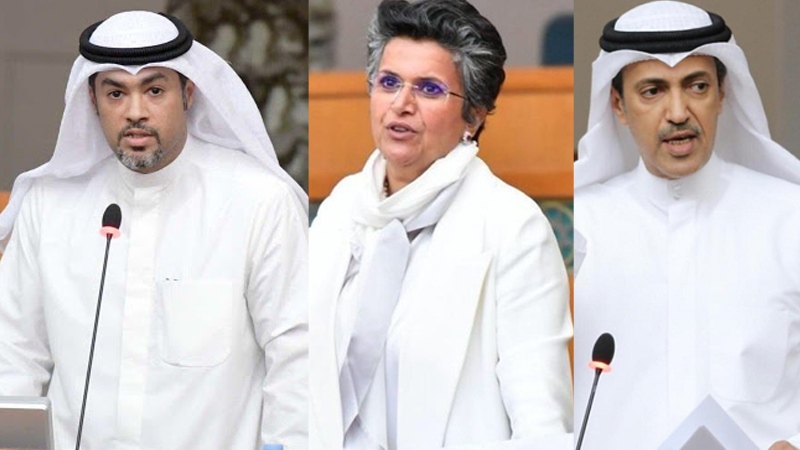07/04/2020
07/04/2020
KUWAIT CITY, April 7: MPs Omar Al- Tabtabaei, Safa’a Al-Hashem, Khalid Al- Otaibi and Khalil Abul submitted a bill on toughening penalties for visa and human traffickers.

In a press statement, Al-Tabtabaie disclosed the bill stipulates changing the category of this illegal act from misdemeanor to crime. He said it is now time for the government, in cooperation with the National Assembly, to solve the demographic imbalance.
He stressed the problem does not lie in the expatriates, but the visa and human traffickers who must be held responsible for the crimes they committed. He also pointed out that many countries recently ignored the humanitarian factor in dealing with the coronavirus crisis, but Kuwait will never do so. He emphasized that addressing the crisis must be in line with humanitarian concepts.
On the other hand, MP Abdullah Al- Kandari forwarded queries to Minister of Social Affairs Mariam Al-Aqeel about the measures taken to reduce the number of workers in security guard companies and if the ministry utilized advanced technology in order to minimize the number of security guards in public institutions.
Moreover, MP Muhammad Haif Al- Mutairi submitted a bill on organizing open and online education in the country. The bill allows public and private higher educational institutions to obtain a license for online and open education; especially for students with special conditions such as the disabled, prisoners and employees who cannot attend classes regularly.
According to the bill, the concerned educational institution should obtain the license from the Ministry of Higher Education after fulfilling all the conditions. It also stipulates that the institution should have been operational for at least five years since inception to qualify for the license. This is in addition to providing academic and administrative facilities, website, platforms, high quality servers, sufficient number of computers and Internet.
The curricula should be in the form of physical books with electronic copies or e-books, while 30 percent of lectures should be conducted in the traditional manner -- classroom setting where the students meet their teachers. Students’ performance will be evaluated according to the usual assessment mechanism with trainings and regular tasks.
Meanwhile, MP Muhammad Husain Al-Dallal presented a recommendation for the Ministry of Higher Education -- represented by Kuwait University, private universities, and Public Authority for Applied Education and Training (PAAET) -- to ask professors and researchers to conduct studies on the consequences of coronavirus in different specializations. Al-Dallal said such studies must focus on the legal, legislative, economic, health and psychological consequences of the crisis and its impact on society. He added that Kuwait Foundation for the Advancement of Sciences (KFAS) should provide financial support for the researchers and it should publish their work.
By Saeed Mahmoud Saleh Arab Times Staff


